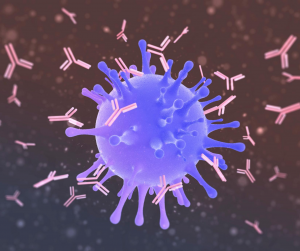Investigate potential differences in adrenergic and muscarinic receptor autoantibody levels in plasma and cerebrospinal fluid (CSF) samples between ME/CFS patients and healthy controls, examine why these autoantibodies start to show up in the disease process and how we might positively impact this process with various drug targets and immune regulatory treatments. Being able to explain these underlying mechanisms may provide the validation needed for specific ongoing treatments.
The development of autoimmune antibodies is a consistent finding across HSE, ME/CFS, Long COVID and provide a window into the neurocognitive disturbances, peripheral symptoms, POTS, pain, and other targets of these autoantibodies.
Previously, autoantibodies have been observed to have increased binding to adrenergic and muscarinic receptors in ME/CFS patients. It is hypothesized
that these autoantibodies may be part of the pathogenesis of ME/CFS and patient symptom.
